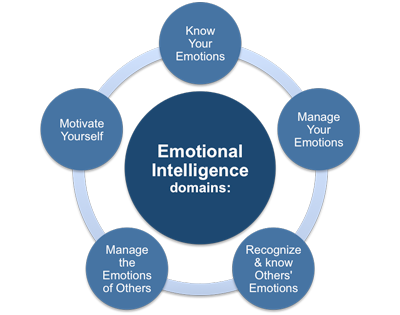Emotional intelligence
is a relatively new concept which has entered strongly
in various fields such as business and education. Goleman defines
it
as “the ability to
recognize our own feelings and those of others, for motivating and managing
emotions well in ourselves and in our relationships.”
We often see how
people with higher IQs are not necessarily the best succeed in different
fields
of life. The less genetically determined emotional intelligence than IQ,
significantly affects the vital success, as this depends on the management of
our emotions.
Thus, children with
higher emotional intelligence have the following characteristics:
They learn more and
better.
They have fewer
behaviour problems.
They feel better
about themselves.
They better resist peer
pressure.
They are less violent
and more empathetic.
They do well in
conflict resolution.
They are happier,
healthier, and more successful.
Therefore, in
teaching practice, promoting emotional intelligence should be conducted in a
coordinated promotion of the other capabilities.
This requires that
teachers also develop their
own emotional intelligence, as it is inevitably
reflected in their teaching. This is especially important because children are
"emotional sponges".
An interesting
exercise that the teacher could use with their students would be to ask for an
assessment of how they feel about the own teacher, in the following categories: accepted,
controlled,
fearful,
criticised, judged, admired,
respected,
supported,
understood and, finally, valued.
The answers can serve
to increase the
teacher’s efforts
to help his students feel
confident, necessary, important, respected, listened to, safe, supported,
understood, appreciated and valued. Before trying to be understood, the teacher
must seek to understand, showing sympathetic and empathetic.
Both teachers and
students must:
Learn to label
feelings, instead
of
people or situations .
Analyze own feelings,
rather than the actions or motives of others.
Ask others how they feel.
Reflect on their own
feelings.
Identify desires and
fears.
Identify unmet
emotional needs.
Be responsible for
own
emotions and happiness, avoiding the belief that other people are responsible for
their own
sensations.
Do not expect others make
you happy.
Express their
emotions.
Be consistent with
their own
feelings.
Jesús Mariano Llamas Sevilla
Jefe de Departamento de Filosofía
IES Francisco Salzillo


No hay comentarios:
Publicar un comentario